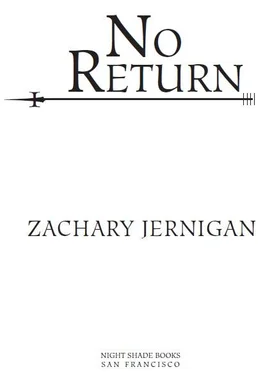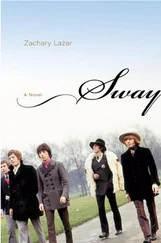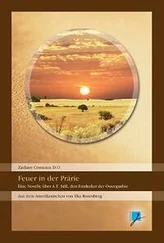Zachary Jernigan - No Return
Здесь есть возможность читать онлайн «Zachary Jernigan - No Return» весь текст электронной книги совершенно бесплатно (целиком полную версию без сокращений). В некоторых случаях можно слушать аудио, скачать через торрент в формате fb2 и присутствует краткое содержание. Год выпуска: 2013, ISBN: 2013, Издательство: Night Shade Books, Жанр: Старинная литература, на английском языке. Описание произведения, (предисловие) а так же отзывы посетителей доступны на портале библиотеки ЛибКат.
- Название:No Return
- Автор:
- Издательство:Night Shade Books
- Жанр:
- Год:2013
- ISBN:9781597804561
- Рейтинг книги:3 / 5. Голосов: 1
-
Избранное:Добавить в избранное
- Отзывы:
-
Ваша оценка:
- 60
- 1
- 2
- 3
- 4
- 5
No Return: краткое содержание, описание и аннотация
Предлагаем к чтению аннотацию, описание, краткое содержание или предисловие (зависит от того, что написал сам автор книги «No Return»). Если вы не нашли необходимую информацию о книге — напишите в комментариях, мы постараемся отыскать её.
No Return — читать онлайн бесплатно полную книгу (весь текст) целиком
Ниже представлен текст книги, разбитый по страницам. Система сохранения места последней прочитанной страницы, позволяет с удобством читать онлайн бесплатно книгу «No Return», без необходимости каждый раз заново искать на чём Вы остановились. Поставьте закладку, и сможете в любой момент перейти на страницу, на которой закончили чтение.
Интервал:
Закладка:
Once, an army had slept atop the wall, guarding its hundred gates and the various villages clinging like barnacles to its lakeward side, but the increasingly aggressive gestures of Nos Ulom and Toma forced Knos Min to fill many of the gates. By the midway point of the one hundred and twentyfourth century only the three largest remained: Ioa, Ynon, and Defu. The villages had been abandoned long before and were crumbling slowly into the lake.
Adrash chose this moment to send his two smallest weapons to earth. They struck the ocean to either side of Knoori, sending tidal waves to the coasts, water vapor and dust into the sky. Thus began the Cataclysm—a tragedy of such monumental proportions that, one thousand years after it occurred, few referred to it at all. When the clouds finally parted, ending the decade-long winter, the population had been reduced by fifty percent.
Nothing lived along the shores of Lake Ten, which did not thaw completely for twenty years after the Cataclysm.
As the continent grew warmer, men gradually returned to the lake, and it was not long before they discovered something extraordinary. Previously unknown species of fish had survived the great freeze, breeding in vast numbers under the thick ice. Large and oily-fleshed, the animals represented not only survival, but prosperity. Generations could grow strong on food such as that. Nations whose borders had not shifted perceptibly during the famine decade now found themselves fighting to keep their waterfront property.
The race to repopulate had begun.
Without a doubt, the nation of Knos Min came out ahead. It owned two hundred and seventy miles of Locborder and its most strategic docks. A vast infrastructure for repopulating cities, fortifying armies, and communicating over vast distances still existed. The old capitol, Danoor, the new capitol, Grass Min, and the sprawling equatorial metropolis Levas sent their best engineers, fishermen and soldiers to the three cities of the lake—Ioa, Defu, and what would come to be the most important, Ynon.
Instead of waging a war of territorial conquest, however, the administrators of the three cities simply fortified the two borders abutting the shore and concentrated on hauling everything they could from the great lake. Dried and fresh fish went to all corners of Knos Min. They traded none of their catch, no matter how high the demand grew throughout the rest of the continent. All resources went to feeding, to growing. Immigrants pored in from across the continent and Knos Min welcomed them, demanding nothing but labor and loyalty of arms.
The first thing many new citizens learned about was the history of Locborder Wall, which had grown as a symbol to encompass the hopes of an entire nation.
As a child, Vedas had learned this narrative. All Knosi children did, no matter how far they had strayed from their homeland. The residents of Golna’s affluent Tannerton had even erected a miniature replica wall alongside their tiny manmade lake, Tenia. Its placement confused the neighboring boroughs because it blocked the view of the water. Few understood how large Locborder loomed in the Knosi consciousness.
In Golna, Men of the Republic were considered arrogant by many of their neighbors, yet this was an unjust prejudice. Tomen were not proud of their deserts? Castans did not admire their own enterprising natures? Arrogance defined Knosi no more or less than the other peoples of Knoori. Anyone who sought to know them would come to the same conclusion.
At least, this is what Vedas had heard. He steered clear of his fellow expatriated Knosi instinctively, like a man avoiding estranged relatives. Abse had once encouraged him to spend more time in Tannerton and Foxridge, but he balked the moment his foot stepped into either neighborhood. The people were too uniform, too like Vedas. Their high cheekbones and wet soil complexions, their broad shoulders and straight backs—all of these things made them more alien than familiar.
An irrational reaction, surely, but Vedas could not control it. He had aligned himself with the Thirteenth Order of Black Suits, and by so doing had left his people behind.
‡
The entry guard looked him up and down, took his name, and waved him through.
As simple as that, Vedas returned home. Yet instead of passing into the city he stood alone under the immense, arcing gate, feeling its thousand tons of basalt pressing down upon him.
Stepping out of the shadows should not be such a challenge , he reasoned. Surely, the air smelled no different in Ynon than it had in Bitsan. In the early morning light even the architecture looked the same: Two- and threestory buildings of sun-bleached sycamore planks. Every fourth or fifth one had been painted, as if the owner could not stand the regularity. Locals glanced at his suit in mild curiosity as they walked by, yet their eyes passed over his features without a second glance.
He folded his arms and leaned against the wall, affecting a casual air. His companions would see through it, but he did it just the same.
A mere ten feet away on the other side of the gate, Churls tapped her foot and gave her name, place of birth, and current residence. The guard wrote the information on his form slowly, asked each question slowly. More often than not, her responses seemed to confuse him. He asked her to repeat herself several times. Finally, he stamped a square of cloth, handed it to her, and waved her through. She smirked at Vedas, rolled her eyes.
Berun stepped up, and the process began again. The guard glanced up at the towering constructed man several times—curious, but not overly so. The reaction surprised Vedas. He had expected something more elaborate for Berun. Backup guards, a robed government mage, possibly even a hellhound or two. But his interview was identical to Churls’s, down to the symbol the guard stamped on his cloth.
“Do you think that’s odd?” Vedas asked.
Berun pressed the cloth to his chest, absorbing it into his body. “It is, and I’d be surprised if this was the end of it. Nos Ulom considers me a terrorist, as the Republic is no doubt aware. Someone will be watching my progress, and it will be very difficult to identify whom. It could be anyone.” He shrugged. “Then again, they say more constructs exist in Knos Min than anywhere else. One more with a bad attitude might make no difference to them.”
They entered the city, the streets of which were jammed tight with locals and foreigners on their way to Danoor. As the sun rose above the rooftops, ever more travelers poured from the doorways of hostels and inns and began making their way toward the western edge of the city. They waited in long lines to buy overpriced jerky and dried fruit, canteens, and sleeping packs. Vedas tried to suppress a growing sense of urgency. They would get through the city exactly as fast as everyone else.
Churls bought a change of light clothing, a new sleeping roll and blanket, and eventually located a bladesman’s. She selected a corroded vazhe the owner strongly discouraged her from purchasing. He suggested a Tomen rekurv instead, a Fazees cuass, even an Ulomi dueling rapier.
“That will not even slice bread!” he called from the door as they walked away.
Churls ran her hand over the rusty blade. She popped a reddened fingertip in her mouth and smiled. “Castan steel. No substitute.”
They waited in more lines. Vedas and Berun stood back a pace as Churls argued over this price, this item’s quality, this vendor’s attitude. Finally, finished with their shopping, they moved toward the outskirts of the city. Churls maintained a vocal presence in the crowd, striking up conversations, directing slow walkers to step aside.
Vedas watched her, amazed that anyone could be so confident in a foreign land.
He existed in a state of agitation, constantly on his guard. Curious strangers brushed their fingertips over his suit, tried again and again to strike up conversation. Men with features that mirrored his own stood in doorways and peered down from balconies, smoking joss and drinking wine. This was their city, their country. They stared at him through their long, meticulously matted locks, demanding an explanation.
Читать дальшеИнтервал:
Закладка:
Похожие книги на «No Return»
Представляем Вашему вниманию похожие книги на «No Return» списком для выбора. Мы отобрали схожую по названию и смыслу литературу в надежде предоставить читателям больше вариантов отыскать новые, интересные, ещё непрочитанные произведения.
Обсуждение, отзывы о книге «No Return» и просто собственные мнения читателей. Оставьте ваши комментарии, напишите, что Вы думаете о произведении, его смысле или главных героях. Укажите что конкретно понравилось, а что нет, и почему Вы так считаете.












